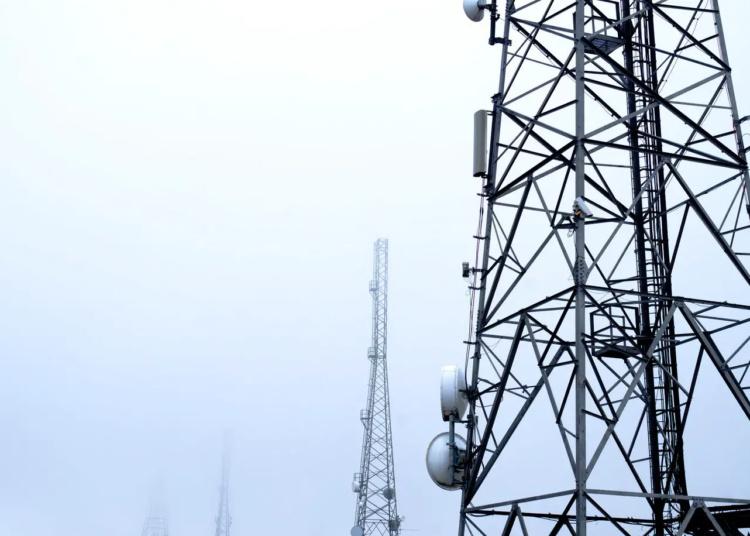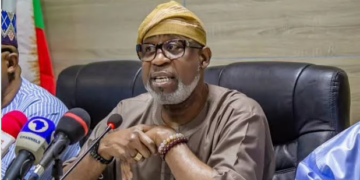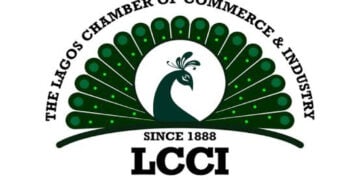The N17.5 million Infrastructure Companies (InfraCos) used in obtaining Open Access FIbre Infrastructure Network license from the Nigerian Communications Commission (NCC) may go down the drain, as they face new hurdle that could mar the rollout of fibre infrastructure to the six geopolitical regions of Nigeria, LEADERSHIP findings revealed.
Recall that seven InfraCos were licensed by NCC to provide fibre infrastructure for service providers to ride on for their network expansion across the six geopolitical regions of Nigeria.
For instance, Infraco Nigeria Limited obtained its license since 2016 (at the rate of N2.5 million, to be renewed in 2036) to roll-out fibre infrastructure in all nook and cranny of Lagos; Brinks Integrated Solution Limited obtained its license in 2018 (at the rate of N2.5 million, to be renewed in 2038) to roll-out infrastructure in Adamawa, Bauchi, Borno, Gombe, Taraba and Yobe and Zinox Technologies Limited obtained its license in 2018 (at the rate of N2.5 million, to be renewed in 2038), to deploy infrastructure in Abia, Anambra, Ebonyi, Enugu and Imo.
Others were Fleek Networks Nigeria Limited, who was licensed in 2018 to deploy telecom infrastructure in Jigawa, Kaduna, Kano, Katsina, Kebbi, Sokoto and Zamfara; Raeanna Nigeria Limited obtained its license in 2018 to deploy telecom infrastructure in Akwa Ibom, Bayelsa, Cross River, Delta, Edo and Rivers; Oodua Infraco Resource Limited, obtained its license in 2018 to rollout infrastructure in Ekiti, Ogun, Ondo and Osun and Broadbased Communications Limited who obtained its license in 2021, was to rollout fibre infrastructure in FCT.
Seven years have passed, yet, none of these InfraCos have been able to deliver, leading to downward trajectory of broadband penetration, as shown in the latest telecommunications statistical indicators released by NCC.
As contained in the latest report, broadband penetration decreased from 48.49 per cent as at February 2023 to 41.87 per cent in December 2023.
Aside the challenges of Right of Ways (RoWs), access to funds, poor return on investment (RoI) in rural areas, multiple taxation and the inability of the federal government to make telecom infrastructure as Critical National Infrastructure (CNI), were a stumbling blocks to this initiative even as InfraCos who spoke to LEADERSHIP, equally lamented their inability to access forex, to purchase the needed infrastructure.
According to them, Nigeria does not produce these infrastructure locally as they are imported into the country. “While we have to look for money to fund our project, we don’t have access to forex. This has further stalled our plans of rolling out fibre infrastructure in rural areas. From all indication, it will be difficult to achieve the 70 per cent broadband penetration by 2025, if the forex challenge, coupled with other challenges are not addressed,” they said.
The chairman, Association of Licensed Telecommunication Operators of Nigeria (ALTON), Engr. Adebayo Gbenga told LEADERSHIP that the failure to rollout fibre infrastructure to unserved and underserved areas cannot be blamed on the InfraCos alone as government has a big role to play.
Unless government address the issue of forex, RoW, access to capital and multiple taxation and regulation, among others, there is nothing the infraCos can do, Gbenga asserted.
“Government must address these barriers that we have been preaching for decades, for the successful deployment of infrastructure, which in turn will help deepen broadband penetration in Nigeria. For instance, I suggest that there is need to embark on more sensitization and advocacy for state governments’ adoption of the harmonized Rate of RoW charge of N145/Linear Meter approved by the National Economic Council in 2019,” the chairman stated.
On access to forex, Gbenga said, it is high time government see the telecom industry as critical sector of the Nigerian economy. “We cannot force government to produce forex that they don’t have. But once it is available, government should consider us, as we are as important to the Nigerian economy as other sectors,” he posited.
In his response, the executive vice chairman of NCC, Dr. Aminu Maida, during a media parley in Lagos, stated that, while there are many regulations and levies to deal with in the telecom industry, state-level regulation of the telecom industry is unavoidable due to the autonomy of the states as guaranteed by Nigeria’s constitution.
However, Maida affirmed that the NCC will handle some of the redundant regulations by working with the state governments and their agencies.
“The telecoms sector has not had enough progress as it wanted with the licensed InfraCos, but NCC will do more of advocacy to drive telecoms infrastructure development in the country. In the area of Critical National Infrastructure (CNI), NCC has done a lot of stakeholders’ engagement, gathering data and looking at the impact in terms of cost when it comes to damages done to fibre infrastructure and how much of service disruption it is creating for the sector,” Maida explained.





